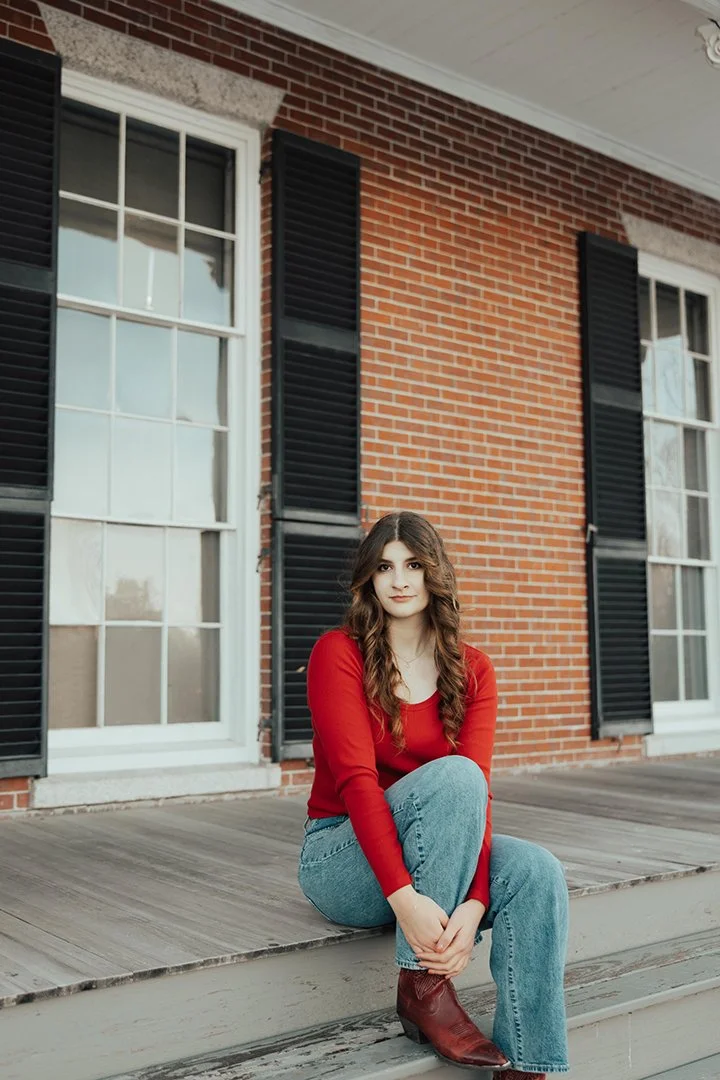Why Learning About the Holocaust Still Matters
Lawrence Alan Spiegel Remembrance Scholarship, 2025
By Kelly Malcolm
There is a saying in Hebrew, it goes: “Lo ta’amod al dam re’echa”, which in English, translates to “Do not stand idly by the blood of your neighbor.” It’s a call not just to witness injustice, but to act against it. This principle sits at the core of Jewish ethics, a moral code which I have adopted into my own moral compass. Learning about the Holocaust changed the way I view the world because it opened my eyes not only to the scale of human cruelty but also to the importance of empathy and compassion. More importantly, it made me realize that remembering the Holocaust isn’t just about history, it’s about preventing history from repeating itself. In a time when antisemitism is rising once again, Holocaust education is vital.
Antisemitism has existed in many forms throughout history. Jews have been discriminated against for being poor, then later for being too wealthy; for their religion, then for their race; for being stateless, and now, for having a state. Over time, false accusations and lies have shifted. From calling Jews Christ-killers, to accusing them of blood libel, to claiming they have horns, and now, to blaming them for COVID-19. No matter the circumstance, people find ways to justify hatred against this minority. The Holocaust, though it happened over 80 years ago, was not an isolated moment. As Winston Churchill famously warned, "Those who fail to learn from history are doomed to repeat it." If we choose to ignore learning this horrifying part of history, we forget what atrocities humans are capable of committing against other humans.
When I visited New York City, I saw graffiti with antisemitic slogans written on telephone poles and crosswalk posts. Death to the Jews, one read. I attended webinars hosted by the Jewish Women’s Council and listened to Jewish students describe the discrimination they face on college campuses: threats, harassment, assault. This hatred is not hidden in history books; it’s in everyday public places, media, and academia. What I saw and heard made me understand something critical: the Holocaust didn’t start with concentration camps. It started with silence, conformity, and ordinary people choosing to look the other away.
Learning about the Holocaust has made me realize how what happened was because too many people stood by and did nothing. People allowed hatred to grow unchecked because it was easier to conform than to speak up. Perhaps if people had viewed one another as equals instead of taking an 'us vs. them' mentality, more would have found the courage to speak out and these atrocities could have been prevented. There’s a famous quote by Martin Niemöller that relates to this theme. “First they came for the socialists, and I did not speak out—because I was not a socialist. Then they came for the Jews, and I did not speak out—because I was not a Jew. Then they came for me—and there was no one left to speak for me.” This tells us that silence is complicity. The Holocaust taught me that standing up for others, especially those who are different from you, is a moral obligation.
Growing up learning about the Holocaust, I was horrified by the inhumanity people were capable of but also inspired by the resilience of the survivors. I read many memoirs of survivors who talked about their strength, their will to live, and their ability to rebuild their lives after unimaginable trauma. In high school, I enrolled in a Holocaust and Genocide Studies class taught by a teacher with a Ph.D. in the subject. Her passion for humanity and advocacy for speaking up against injustice fueled my desire to act, not just learn. I wanted to take what I had learned and use it to make a difference. That year, I founded my school’s first Humanitarian Issues Awareness Club. I realized that having values wasn't enough, I had to share my morals and humanitarian views with others. If I truly believed in ending hatred and promoting compassion, then I had to do something about it. Through this club, we shed light on current events, held fundraisers for marginalized communities in need, and created campaigns to raise awareness about antisemitism and human rights.
The Holocaust was a moral catastrophe, and acknowledging that should be a universal truth. And yet, even today, there are people who deny it happened, or worse, who try to justify similar atrocities. When Jewish students at universities are incessantly being harassed because of their religion or heritage, and the world either justifies it or shrugs, something is deeply broken. Dismissing these acts or encouraging their repetition shows exactly why Holocaust education is still vital. Learning about the Holocaust is not just about remembering the past; it’s about shaping the future. It teaches compassion, empathy, and the importance of treating every human being with dignity. These aren’t abstract values, they are practical tools to build a better world. The Holocaust is a warning of what happens when we lose our sense of shared humanity. That’s why it’s essential that every generation learns about it, and why I will never stop advocating for it.
Kelly, a recent graduate of Ellsworth High School, is attending Maine Maritime Academy and majoring in International Business and Logistics. We were so fortunate that Kelly attended the 40th Anniversary Gala to receive her award and read excerpts from her essay.
Students: If you would like to submit an essay to be considered for this scholarship, apply here.

